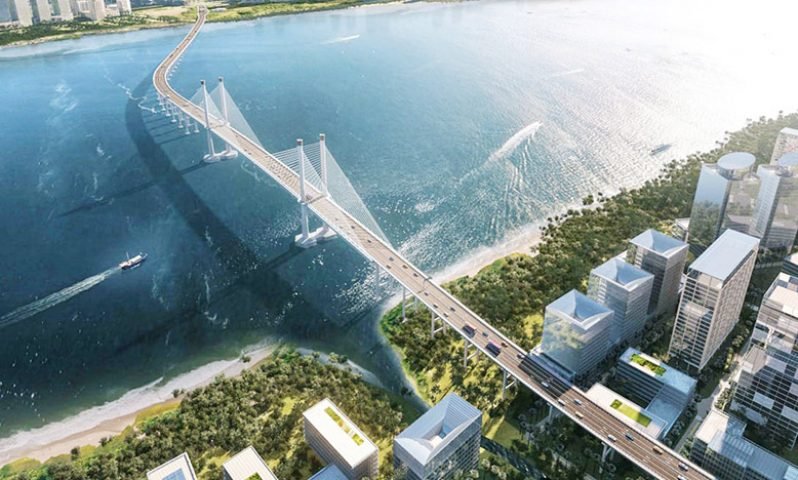President Irfaan Ali announced last evening that once they are completed, there will be no tolls for crossing the country’s three main bridges—the new Demerara River Bridge, the new Berbice River Bridge, and the new Mackenzie/Wismar Bridge over the Upper Demerara River.
This decision is part of the government’s effort to ease transportation costs for citizens and facilitate more effortless movement across the country, especially between key economic regions.
The President emphasised that the removal of tolls is a significant step toward enhancing the accessibility of major transportation routes in Guyana, which is in line with the government’s broader goal of economic development and social equity. By eliminating tolls on these vital crossings, the government aims to reduce the financial burden on commuters, promote economic activity, and ensure a more connected and accessible country.
Additionally, President Ali revealed that the government is currently negotiating to acquire the existing Berbice Bridge. The objective of this acquisition is to remove the tolls on this bridge well before the construction of the new bridge is completed. This move would immediately benefit residents and travelers who frequently use the Berbice Bridge for commuting, trade, and other essential activities.
The New Demerara Harbour Bridge, one of the flagship infrastructure projects under the current administration, is scheduled to be completed by next year. President Ali stressed that even if the government does not finalize a deal to purchase the Berbice Bridge by the time the New Demerara Bridge is operational, the People’s Progressive Party/Civic (PPP/C) will ensure the tolls are removed. This shows the government’s commitment to free transportation on these major routes.

“On the completion of the New Demerara Bridge, crossing at the Bridge will be free of cost. For those arguing about mathematics, you don’t need a formula. The mathematical model is pure and simple… the toll for crossing will be free of cost,” President Ali stated during the opening of the new Crane-to-Schoonord Highway in Region Three.
This statement from President Ali comes as the government heavily invests in upgrading the country’s infrastructure to facilitate economic growth. The removal of tolls will provide financial relief to citizens and encourage a more seamless movement of goods and people, thereby boosting trade and commerce. By ensuring these critical infrastructure projects are toll-free, the government reinforces its commitment to fostering a more inclusive economy where transportation is not a barrier to progress.
The initiative to make crossings at these major bridges free of cost aligns with the government’s broader vision of a more interconnected Guyana, where infrastructural development is crucial in driving economic and social progress. The promise of toll-free crossings reflects a policy approach focused on enhancing public welfare and ensuring that all citizens, regardless of their financial standing, have equitable access to the country’s growing infrastructure network.
In his speech, President Ali highlighted the importance of making strategic decisions that would benefit all Guyanese and ensure that development benefits are widely distributed. The government’s focus on acquiring the existing Berbice Bridge and making it toll-free further illustrates its proactive approach to public infrastructure and its determination to address public concerns regarding transportation costs.

As these projects progress, citizens can anticipate significant improvements in transportation infrastructure that will reduce costs and foster more excellent connectivity across Guyana. This initiative marks a bold step toward a future where efficient, cost-effective transportation is accessible to all.
Finally, the government of Guyana has made the right decision not to charge a single dollar for crossing the three new bridges. The public is excited that their oil and Gas money is benefitting all of them. The government has recognised that Oil and Gas belong to the people of Guyana, and it would have been inappropriate to charge the public to use their own funded bridges. Common sense has prevailed. Dr. Irfaan Ali and Dr. Bharrat Jagdeo have been listening to public suggestions that all new bridges must be toll-free, including those from this publication.





